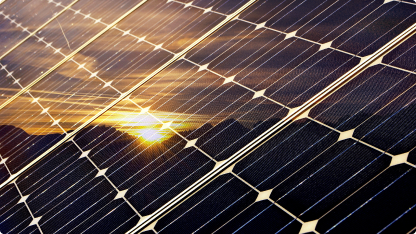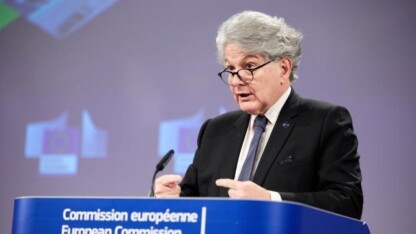Today, the Commission is formally endorsing a new Solar Photovoltaic Industry Alliance, with the aim of scaling up manufacturing technologies of innovative solar photovoltaic products and components. This will contribute to accelerating the deployment of solar power across the EU and improving the resilience of the EU’s energy system.
The Alliance is one of the concrete initiatives of the EU Solar Energy Strategy, adopted in May 2022 as part of the REPowerEU Plan, which will help the EU reach over 320 GW of newly installed solar photovoltaic capacity by 2025, and almost 600 GW by 2030. Today’s endorsement paves the way for a call for membership in the Alliance to be published in November.
Commissioner Thierry Breton, responsible for the Single Market, said:
“To meet Europe’s renewable energy objectives — and avoid replacing a dependency on Russian fossil fuels with new dependencies — we are launching an industrial alliance for solar energy. With the alliance’s support, the EU could reach 30 Gigawatt of annual solar energy manufacturing capacity by 2025 across the full PV value chain. The alliance will foster an innovative and value-creating industry in Europe, which leads to job creation here. Europe’s solar industry already created more than 357,000 jobs. We have the potential to double these figures by the end of the decade.”
Thierry Breton
European Commissioner for Internal Market
Once set up, the Alliance will bring together industrial actors, research institutes, consumer associations, NGOs and other stakeholders with an interest in the solar PV sector. It will deliver an action plan for the solar industrial value chain in Europe and engage with the EU and Member States on issues ranging from research and innovation, technology, industrial supply chain, raw materials, access to finance, off-takers, international partnerships and global supply chain resilience, circularity, sustainability and skills. The launch of the Solar Photovoltaic Industry Alliance is expected by the end of the year. The Commission will work with EITInnoEnergy to establish it, building on the successful track record of the Batteries Alliance.
The Commission’s approach with industrial alliances has been very successful and a model for the future. For instance, the Battery Alliance has played an essential role in ensuring that Europe can meet up to 90% of its demand with batteries produced in Europe by 2030. The European Clean Hydrogen Alliance is boosting hydrogen production capacities in Europe.



